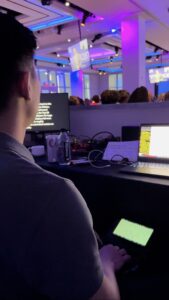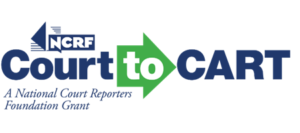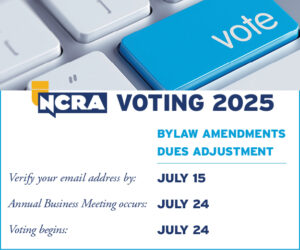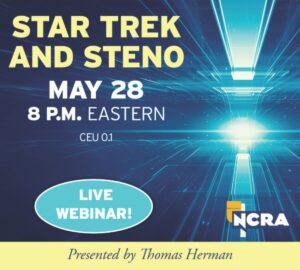Deaf History Month is celebrated in April. On behalf of our broadcast and CART captioner members, NCRA shares some facts and figures about the Deaf community in the United States.
According to the National Institute on Deafness, one in eight people in the United States aged 12 years and older has hearing loss in both ears and up to 20 percent of the United States population reports some type of hearing loss. Sixty percent of people with hearing loss are in the workforce.
Many in the deaf and hard-of-hearing communities rely on services such as a Communication Access Realtime Translation (CART), sometimes referred to as realtime captioning, a word-for-word speech-to-text service that displays the complete translation of all spoken words and environmental sounds to faithfully communicate the integrity of the message. The Americans with Disabilities Act (ADA) mandates the elimination of discrimination against people with disabilities. Under the ADA, CART is recognized as an assistive technology that affords “effective communication access.” CART is provided by a CART captioner who uses a steno machine, a computer, and realtime software to provide instant speech-to-text translation on a computer monitor, laptop, tablet, or smartphone for the benefit of an individual consumer or larger group in a variety of settings.
A CART captioner receives training before passing a written test and demonstrating they can write at 180 words per minute with 96 percent accuracy. A CART captioner’s training in conveying a speaker’s message, complete with environmental cues, makes them sensitive to the varying needs of consumers. When hiring a certified CART captioner, consumers want to look for the Certified Realtime Captioner (CRC) credential.
Individuals who are deaf or hard of hearing and their advocates can find certified captioners online at NCRAPROLink.













